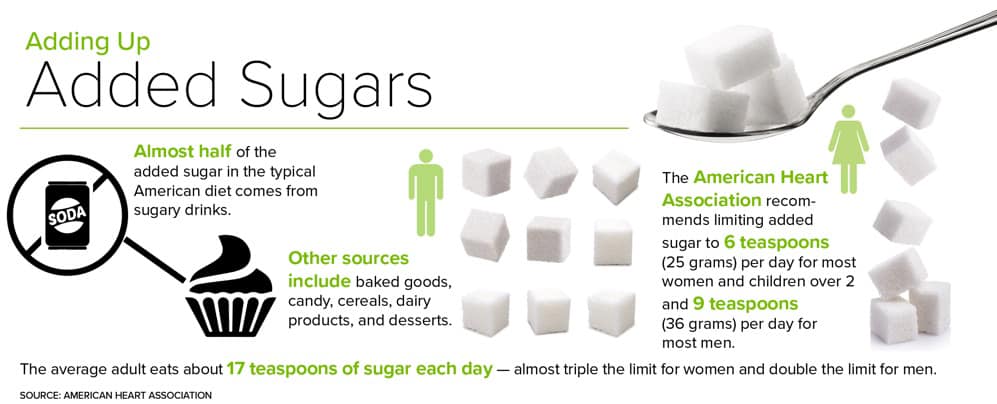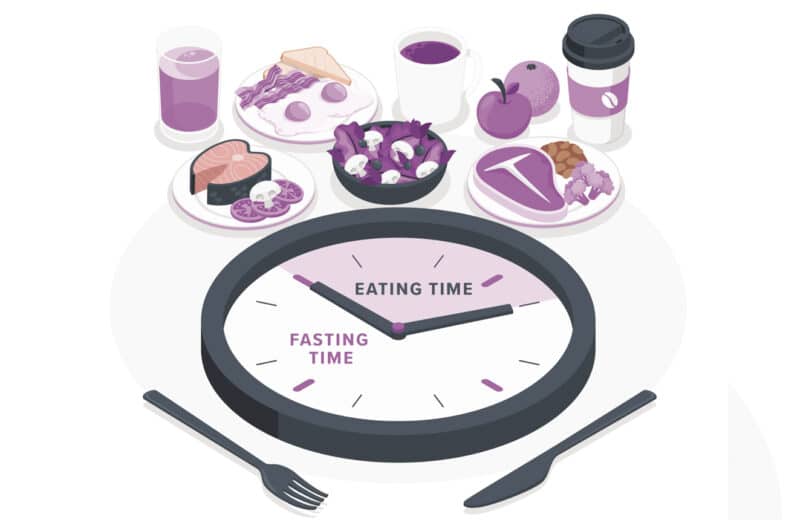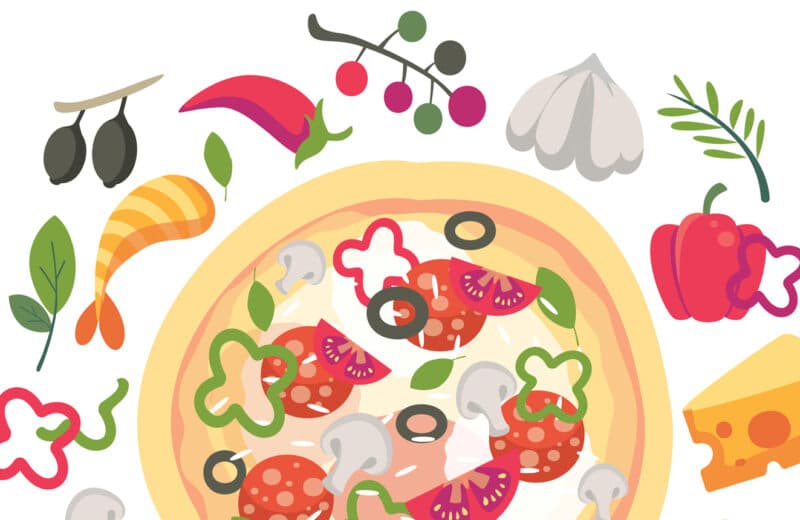Eating excess sugar may be linked to cancer, arthritis, and other ills
Not all is sweet about sugar. Sugar — the craveable substance that ignites our taste buds, brain, and cells with quick energy — causes inflammation in the body, which can lead to chronic diseases such as obesity, type 2 diabetes, and cardiovascular disease.
Naturally occurring sugars, such as the sugar in fruit (fructose) and in milk products (lactose), are balanced by other nutrients in foods, such as fiber, protein, vitamins, and minerals.
On the other hand, added sugars include any sugars or sweeteners that are added to food or beverages during the processing or preparation period.
Those added sugars add up to empty calories, devoid of nutrients and fiber. This can make people eat more and cause blood sugar fluctuations. Those changes put people at risk for weight gain and type 2 diabetes down the road.
“It is best to limit intake of added sugar and choose foods with naturally occurring sugars instead,” says Allie Fuller, RD, a clinical dietitian at Northwestern Medicine Lake Forest Hospital.
Our brains and bodies crave sweets because they release comforting, feel-good chemicals, such as dopamine, in the brain. Sugar may slow down the release of the stress hormone cortisol, creating a calming effect in the body. Our bodies get used to sweet foods — the more we eat, the more we crave.
The average American eats 270 calories of added sugar a day or about 13% of their total calories in added sugar, according to the 2020 – 2025 Dietary Guidelines for Americans. Instead, adults should limit added sugar to no more than 10% of total calories per day.
Cancer and sugar
There may be a correlation between sugar intake and certain cancers. Eating excessive sugar can lead to cancer precursors such as obesity and cardiometabolic problems. Sugar is also associated with other cancer risk factors, such as oxidative stress, inflammation, and insulin resistance.
Many sugary foods have a high glycemic index, which elevates blood sugar and insulin levels. That, in turn, increases the risk of obesity and type 2 diabetes. And being overweight or having obesity is linked with a higher risk of 13 types of cancer, according to the Centers for Disease Control and Prevention.
Skip the sugar and opt for a healthy diet instead. A plant-based diet comprised of whole fruits, vegetables, and whole grains is associated with a 56% risk reduction for colorectal cancer, according to an analysis in Cancer Epidemiology.
Arthritis pain and sugar
Sugar is also problematic because it can worsen joint pain from arthritis. When we eat excess sugar, our bodies create proinflammatory cytokines, which can lead to chronic inflammation and pain, says Tolga Suvar, MD, an anesthesiologist and specialist in interventional pain management at Rush University Medical Center.
“Research has shown that certain foods positively and negatively affect rheumatoid arthritis symptoms,” Suvar says. For example, in a study published in the journal Arthritis Care and Research, people with rheumatoid arthritis reported that blueberries and spinach improved their arthritis symptoms, while soda and desserts worsened them.
To reduce pain, cut back on sugary carbohydrates, such as desserts and soda, and replace them with fiber-filled, complex carbs. Keeping a symptom log can help you know which foods exacerbate your pain.
“The foundation of the foods we eat should be a Mediterranean diet with a balance of vegetables, legumes, and whole grains with a low glycemic index such as quinoa, barley, buckwheat, and oats,” Suvar says.
A low-sugar lifestyle
Sugar’s delicious taste comes with a long list of potential ills. “In general, there is no added nutritional benefit that comes from consuming additional sugar in your diet,” Suvar says.
Stick with the American Heart Association’s guideline of no more than 6 teaspoons (25 grams) a day of added sugar for women and 9 teaspoons (36 grams) of added sugar a day for men.
“Pay attention to food labels and serving sizes,” Fuller says. “Eat foods with added sugar in moderation.”
A low-sugar lifestyle is about making choices and food swaps. “The easiest way to cut out most sugar from your diet is to stop drinking soda,” Suvar says. One can of cola with 39 grams of added sugar can exceed an adult’s daily sugar limit. Instead, replace sugary drinks with plain water or fruit- or vegetable-infused still or sparkling water.
Skip sweetened coffee drinks, too. “Unsweetened tea and coffee are much healthier than high-caloric latte drinks that contain syrups and sweeteners,” Suvar says.
Choosing your sugar sources wisely is an important part of overall health and longevity. To keep your health in sweet shape, skip added sugars.















